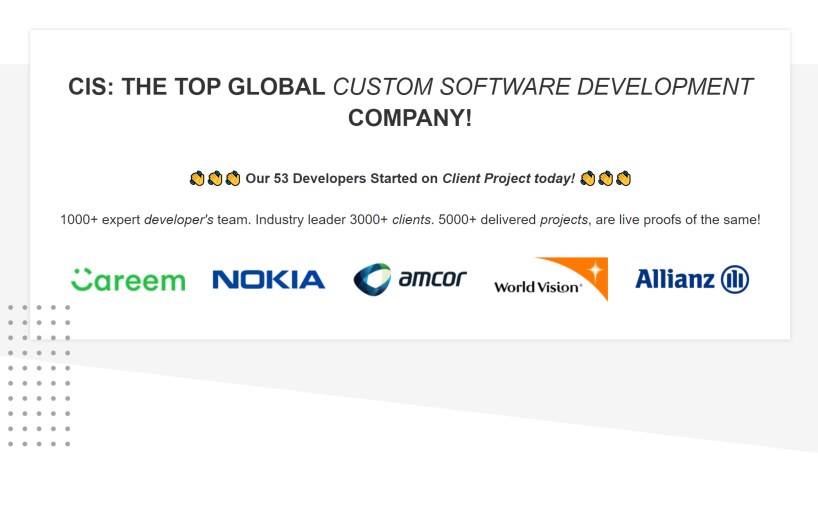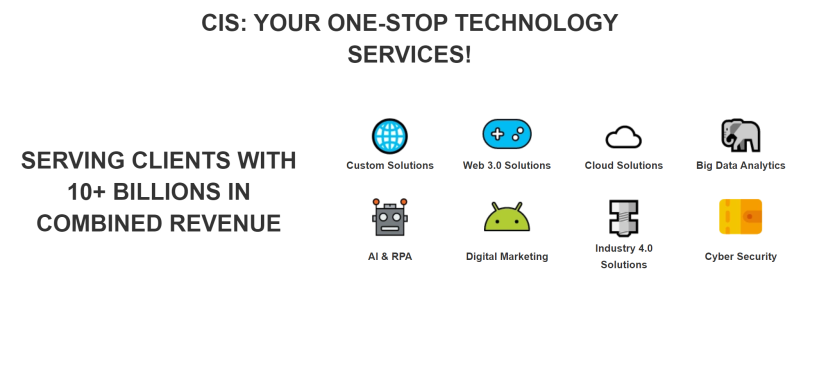Maximizing ROI: The Cost and Benefits of Adopting Salesforce Integrations With Sap Erp for Your Business
- Salesforce integrations with SAP ERP - Detailed Analysis by Enterprise Solutions Experts
Request A Free Consultation - Why Use Salesforce Integrations With SAP ERP



Why Mid-size Companies and Enterprises needs Salesforce Integrations With SAP ERP:
Mid-size companies and enterprises need Salesforce integrations with SAP ERP in order to streamline their business processes, increase efficiency, reduce costs, and improve customer service. By integrating Salesforce with SAP ERP systems, businesses can gain access to a single source of truth for all their customer data, allowing them to make better decisions faster. Additionally, the integration enables organizations to automate tedious manual tasks such as order entry and invoicing that would otherwise take up valuable time and resources. This helps ensure that teams are working smarter rather than harder while also providing customers with an improved experience through seamless communication between departments.
Benefits of using Salesforce Integrations With SAP ERP in Mid-size companies and Enterprises:
1. Increased Efficiency:
Integrating Salesforce with SAP ERP can help to streamline processes and increase efficiency by eliminating manual data entry and ensuring that data is always up-to-date. This will result in more accurate reporting, improved decision making, and better customer service.
2. Improved Visibility:
By integrating Salesforce with SAP ERP, companies gain real-time visibility into their business operations across departments and functions. This helps them identify opportunities for improvement as well as potential areas of risk before they become an issue.
3. Cost Savings:
Integrating Salesforce with SAP ERP reduces the need for multiple software solutions that require additional licenses or maintenance fees which can save money in the long run. Additionally, automating processes results in fewer errors due to manual input which also saves time and money.
4. Enhanced Data Security:
By utilizing a single system for all of your company's data instead of relying on multiple sources, you can ensure that only authorized personnel have access to sensitive information while still providing the necessary insights needed to make informed decisions about your business operationsDetailed Features of Salesforce Integrations With SAP ERP for Mid-size companies and Enterprises:
1. Seamless Data Integration:
Salesforce integrations with SAP ERP allow for real-time data synchronization between the two systems, ensuring that all customer and product information is up to date in both platforms. This helps mid-size companies and enterprises ensure accuracy of their data across multiple applications.
2. Automated Processes:
By connecting SAP ERP to Salesforce, automated processes can be set up between the two systems, allowing for streamlined business operations and reduced manual effort from employees.
3. Improved Accuracy:
With an integrated system, businesses can reduce errors associated with manual entry by automatically syncing data between the two platforms. This helps improve accuracy of information while saving time and resources on manual corrections or rework due to incorrect entries in either system.
4. Enhanced Reporting Capabilities:
Integrating Salesforce with SAP ERP provides users access to a comprehensive view of customer insights as well as detailed financial reports which are not available through just one platform alone. This allows for better decision making based on accurate reporting capabilities provided by both systems combined together into one interface .
5. Increased Efficiency & Cost Savings:
By integrating both systems, businesses can streamline their processes such as order processing or inventory management resulting in increased efficiency and cost savings over time since there is no need to manually enter duplicate information into each platform separatelyRequest A Quote - Why Use Salesforce Integrations With SAP ERP
Who are the Users of Salesforce Integrations With SAP ERP:
The customers using Salesforce integrations with SAP ERP are typically large enterprises or organizations that have invested in both Salesforce and SAP ERP. These customers may be looking to leverage the existing investments they have made in both systems, as well as increase their efficiency by integrating them together. Examples of industries that could benefit from this integration include manufacturing, retail, financial services, healthcare, and education.
How to ensure Data Security and Compliance with Salesforce Integrations With SAP ERP:
1. Establish a secure connection between Salesforce and SAP ERP:
Ensure that all data is encrypted in transit, and use two-factor authentication for access to any sensitive information.
2. Monitor your integrations regularly:
Use an automated monitoring tool to detect any suspicious activity or changes in the integration process that could lead to potential data breaches or compliance issues.
3. Implement access controls:
Set up user permissions within both systems so that only authorized users have access to confidential information, such as customer records or financial data.
4. Regularly audit your system:
Run periodic audits of your integration setup to ensure it meets industry standards for security and compliance with regulations like GDPR and HIPAA.
5. Train employees on best practices:
Make sure all employees understand the importance of following best practices when dealing with sensitive customer data, such as not sharing login credentials or using unsecured devices for accessing the system.How Salesforce Integrations With SAP ERP can increase organization Productivity, Agility, and Profitability:
Salesforce integrations with SAP ERP can increase organization productivity, agility, and profitability by streamlining business processes such as order management, inventory tracking, financial reporting, customer relationship management (CRM), and more. This integration allows for the transfer of data between Salesforce and SAP ERP systems in real-time to ensure accuracy. Additionally, it reduces manual data entry errors which saves time and resources. It also enables organizations to better manage their customer relationships by leveraging predictive analytics from both platforms to gain insights into customer behavior. Finally, this integration helps improve decision making by providing access to up-to-date information across multiple departments within an organization.
Request A Quote - Why Use Salesforce Integrations With SAP ERP
How to Measure KPIs and increase Benefits of implementing Salesforce Integrations With SAP ERP in Mid-size companies and Enterprises:
1. Define KPIs:
The first step in measuring the benefits of implementing Salesforce integrations with SAP ERP is to define the key performance indicators (KPIs) that you will use to measure success. Examples of KPIs could include cost savings, increased customer satisfaction, improved operational efficiency, and faster time-to-market for new products and services.
2. Track Metrics:
Once you have identified your KPIs, it is important to track them on a regular basis throughout the implementation process. This will help you understand how well the integration is performing and identify areas where improvements can be made. You should also consider tracking metrics such as user adoption rates, data accuracy, system uptime/downtime statistics, response times for queries or requests submitted via Salesforce or SAP ERP systems etc., in order to gain further insights into how successful your integration has been so far.
3. Monitor Performance:
It's not enough just to track metrics; you must also monitor their performance over time in order to make sure that any changes are having a positive effect on your business goals and objectives. For example, if customer satisfaction levels drop after implementing an integration with Salesforce and SAP ERP then this could indicate that something needs adjusting within either one of these systems in order for it to work correctly again - allowing you to quickly resolve any issues before they become more serious problems down the line which may impact upon other areas of your business operations too..
4. Analyze Results:
After monitoring performance over time it is important that you analyze results regularly so as to ensure that all actions taken are having a positive impact on both short-term and long-term objectives related directly or indirectly with the implementation of Salesforce integrations with SAP ERP solutions within mid-size companies or enterprises.. By analyzing results regularly it allows decision makers within organizations greater visibility into what works best when integrating different software applications together - thus providing them with valuable insight into how best they can optimize their IT investments going forward too!How Salesforce Integrations With SAP ERP can increase Employee Morale in your organization:
Salesforce integrations with SAP ERP can increase organization employee morale by streamlining processes and making them more efficient. This will reduce the amount of time spent on manual tasks, allowing employees to focus their energy and attention on higher-value activities that are more meaningful and rewarding. Additionally, it can also provide better visibility into business performance, enabling employees to see how their work is contributing to the success of the organization. Finally, increased automation may lead to fewer mistakes due to human error which could lead to improved job satisfaction among staff members.
How Salesforce Integrations With SAP ERP is Better than its Competitors:
Salesforce integrations with SAP ERP provide a number of advantages over its competitors. For example, Salesforce offers an easy-to-use interface for integrating data between the two systems, allowing users to quickly and easily access information from both applications without having to manually enter it into each system. Additionally, Salesforce provides robust security measures that protect sensitive customer data when transferring information between the two systems. Finally, Salesforce's comprehensive suite of tools makes it easier to manage complex processes across multiple systems in one place.
Request A Quote - Why Use Salesforce Integrations With SAP ERP
Cost to Develop & Implemention of Salesforce Integrations With SAP ERP:
The cost to develop and deploy Salesforce integrations with SAP ERP will vary depending on the complexity of the integration, the size of your business, and other factors. Generally speaking, a custom integration between Salesforce and SAP ERP can range from $20,000 - $50,000 or more. The cost may also include ongoing support costs for maintenance and updates.
Why outsourcing implementation services for Salesforce Integrations With SAP ERP is better for Mid-size companies and Enterprises:
Outsourcing implementation services for Salesforce integrations with SAP ERP can be beneficial for mid-size companies and enterprises as it allows them to leverage the expertise of an experienced team of professionals. This team will be able to provide deep technical knowledge, best practices, and guidance on how to integrate these two systems in a cost effective manner. Additionally, outsourcing implementation services eliminates the need for businesses to hire additional staff or train existing employees on how to use the software. The outsourced team will also be better equipped at troubleshooting any issues that may arise during integration. Finally, outsourcing implementation services ensures that the project is completed quickly and efficiently without sacrificing quality or performance.
Request A Quote - Why Use Salesforce Integrations With SAP ERP


